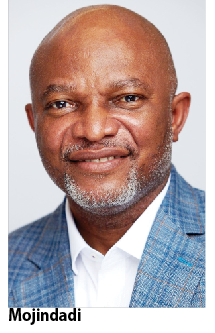The push for energy transition which the federal government unveiled in early September, is now attracting global attention with notable international energy providers seeking to key into the initiative.
This appear to be a interesting news for the government which knew from on start the enormity of work and resources that are required to achieve that daunting task.
This is because the country’s energy sector which has witnessed funding constraints is faced with depressed challenges emanating from European community which has raised the red flag towards funding fossil projects.
At the transition flag off, Nigeria opened up to international funders for a $10 billion jumpstart to the programme which includes solar expansion and a doubling of gas power generation.
The government aspires to provide universal access to electricity, and transition to cleaner energy sources, hoping to raise 100 million people out of poverty by 2030.
By then, the mission aims to provide electricity to almost 90 million people without power while putting the country on track to reach net-zero emissions by 2060.
Nigeria is counting on gas as a transition fuel to provide electricity and estimates the cost at $410 billion by 2060.
GE’s In-Road With Advanced Technology
General Electric, GE, which has been collaborating with energy stakeholders to deploy innovative technologies tailored to respond to the needs in the sub-Saharan Africa region since the 1950s with reliable baseload and flexible emergency power, has expressed the desire to assist the country address its energy crises.
The company delivers across the entire energy ecosystem from generation to transmission and distribution and throughout Nigeria, GE-built technologies are supported by local service and maintenance teams from the company to ensure access to reliable and sustainable energy.
Confirming this to a select media representatives at its facilities in Dubai, Mohammed Mojindadi, president and chief executive officer, GE Nigeria asserted that GE is uniquely positioned through its portfolio of technologies to help customers address their energy ambitions.
Mojindadi, its intervention in the Nigeria’s energy transition space will help the country seamlessly realise its objectives in real time given the company’s strong local presence across gas, grid and renewables.
The company has over time executed key projects and boosts of the largest thermal installed base in Nigeria.
Its Onshore Wind Offshore Wind Hydro alongside Small Modular Reactor Gas Fired Power Hydrogen in Gas Turbine Storage & Hybrids Grid Solutions gives the company the edge and indeed well positioned to help the transition drive in the country.
Chief executive officer and president GE Gas Power Europe, Middle East and Africa, EMEA, Joseph Anis, sharing his opinion expressed confidence in the company’s intervention in the country.
As a key member investor in the grid space and playing critical role in enabling a diversified energy mix, the company’s new vision in Nigeria is expected to profoundly revive the country’s ailing power sector.
Before the launch of the energy transition plan by the the vice president, GE, had projected to improve energy access in Nigeria with emphasis in deploying critical infrastructures and technology and specifically providing a rare technology that will help existing power generation assets not only optimizing operations but expand output using heat capture technology not yet operational in the country.
One clear feature that GE is technology is introducing is how to utilise gas to build new smart plants.
An exciting feature in the technology is the reapplication of used gas to raise additional 50 per cent of an existing plant capacity.
This is going to save cost and reduce greenhouse gas emissions. Accordingly, this follows the company’s path towards accelerating decarbonisation along asset upgrades, revitalization and pathway to zero CO2.
With $14 billion annual Investment GE is set to drive Nigeria forward by tackling its biggest electricity challenges.
The company which currently leads in energy solutions has worlds largest installed base of gas turbines and more than 670 million operating hours across its installed fleet, offering advanced technology and a level of experience that is unmatched in the industry to build, operate and maintain leading gas power plants.
Nigeria, which is reportedly the largest economy in Sub-Saharan Africa is currently growing at 2.28 per cent with only 45 per cent of population accessing electricity via a fragile grid system.
Power generation in Nigeria is 80 per cent fossil fuel and 20 per cent
hydropower with a large gap between installed and operational capacity
Inadequate supply of electricity has inhibited industrial, economic and societal growth as a result of insufficient, transmission and distribution infrastructure, inadequate power industry investments and capacity expansion, absence, of cost reflective tariffs, gas supply constraints, high incidences of load.
Seeking More Partnerships
Understanding the difficulty convincing the European Union, to jettison campaign against fossil fuel funding, vice president Yemi Osinbajo, at the dinner of the 60th anniversary of the Oil Producers Trade Section (OPTS) of the Lagos State Chamber of Commerce and Industry (LCCI), made a passionate appeal for group to key into the plan of action.
Osinbajo, spoke on the Theme: Nigeria Transitioning to Green Energy.
He began by thanking Rick Kennedy, Chair of the Oil Producers Trade Section of the LCCI, and acknowledged the group for its outstanding role in the growth and development of the oil and gas sector in Nigeria and for the numerous social development projects undertaken by its members through the years.
Laying foundation for the discussion the vice president first highlighted some problematic issues in the transition process.
The most consequential subject globally in the next few decades will undoubtedly be Climate Change, he said.
Already, it is evident from so many adverse climate occurrences, floods, desertification, rising water levels, and record high temperatures that there is a global climate crisis.
The obvious, if difficult solution to the crisis is to stop carbon emissions and use green energy. The staple wisdom is that coal and fossil fuels are major pollutants. That being the case, it is proposed that countries and corporations should gradually reduce the use of these high pollutants and instead use renewable energy such as solar and wind, hydro and completely stop the use of these carbon emitters by the agreed target date of 2050.
“Now most countries including Nigeria of course agree that we must reduce global emissions to zero, in our case by 2060. We are major victims of the effects of climate change, but there are a few important issues that we have flagged to our wealthier brother-countries in the global north.” he said.
Osinbajo went to say that Nigeria along with other developing nations are faced with two, not one crisis, which he said included climate change and extreme poverty, the cause and consequence of which is energy poverty.
He said that lack of access to electricity for millions is a cause of deepening poverty.
The second he stated is that African countries are the least emitters of carbon today- less than 1 per cent of cumulative C02 emissions and that even if it triples electricity consumption in African countries (aside from South Africa) solely through the use of natural gas this would add just 0.6 per cent to global emissions.
So a lot of the flooding and adverse weather events that we are experiencing here are from emissions caused by the wealthier countries.
The third he mentioned is that the defunding of gas projects in order to force gas rich countries like Nigeria to stop using gas and use renewables instead is faulty.
These proposals to ban the funding of fossil fuel projects make no distinction between upstream oil and coal exploration; and gas power plants for grid balancing. Osinbajo, argued that no economy in the world has been known to use renewables, solely, to industrialize as solar power simply does not have the base load capacity yet for industry.
Fourthly, he continued is stopping the use of gas which then implies that we cannot use Liquified Petroleum Gas, LPG for clean cooking stoves to replace the use of kerosene, firewood and charcoal which are dirtier fuels that are widely used for cooking and other domestic purposes particularly in the rural areas. The use of firewood means deforestation, cutting down trees and of course desertification and then the loss of our carbon sinks.
The fifth is the double standards that wealthier countries have adopted on this issue. Today in the wake of the energy crisis, many European nations have made recent announcements to increase or extend their use of coal fired power generation through 2023, and potentially beyond. This is in violation of their climate commitments, and analysis suggests that this will raise power sector emissions of the EU by 4 per cent a significant amount, given the high base denominator of EU emissions.
The sixth and perhaps most crucial point is that we must take quick and informed actions in our National interest. “We must take the threat of no investments in fossil fuels including gas seriously. For an example, many European and other global North countries are setting aggressive targets for use of electric vehicles and the banning of combustion engine vehicles. Soon there may be only a few countries using combustion engines. It is also evident that while the Russia invasion of Ukrainian has shown the double standards in not allowing public funding for fossil fuel projects, the wealthier nations are still of the view that this is the correct policy and that even if public funding is to be allowed financing should not go beyond 2035.”
This he said Nigeria’s response has been the Energy Transition Plan which incorporates a comprehensive, data-driven and evidence-based plan, designed to deal with the twin crises of climate change and energy poverty.
Providing better understanding of the initiative, he said, “We anchored the plan on key objectives, including lifting 100 million people out of poverty in a decade, driving economic growth, bringing modern energy services to the full population and managing the expected long-term job loss in the oil sector due to global decarbonization.”
He added, “Given those objectives, the plan recognises the role that natural gas must play in the short term to facilitate the establishment of base load energy capacity and address the nation’s clean cooking deficit in the form of LPG. Gas is of course critical to integrating a greater share of renewable energy in Nigeria’s energy mix. Also natural gas (methane) is an important chemical feedstock especially for ammonia production for fertilizers.”
To achieve these objectives by 2060, he said Nigeria would need $410b or $10b per annum above business as usual spending.
Because funding the prgramme is capital intensive he said the OPTS has a major role to play in that space.
Osinbajo asked the group, “Where do we get this from? In addition to conventional capital flows both from public and private sources local and international, we also made the case that we should be on the G7 Climate partners list which should attract significant funding ( I have held recent meetings with World Bank, US Treasury Secretary and only last week with the US special envoy on climate change).”
He said, It is also essential that we participate fully in the global carbon finance market. So we think the Voluntary carbon markets can play a significant role in directing private capital into climate action.
How do they work? A developer sets up a project that avoids certain emissions ( e.g. methane capture from landfills or removes carbon from the atmosphere by reforestation or replacement of diesel generators with solar power. The project is registered under a standard VCS, gold standard, and validation and verification is done by an independent body.
Carbon credits equivalent to the mitigation achieved are issued to the project subject to verification. The developer then sells the carbon credits to companies , governments or individuals seeking to compensate and or neutralize their emissions. Some Nigerian companies have already been doing lucrative carbon avoidance or removal projects that have yielded carbon credits. Amazon energy were contracted to do a Gas Flare Down project for an IOC in Kwale and the IOC utilized the carbon emissions reduction for carbon credits
Also given the escalating debt situations of many developing countries including Nigeria, especially in the aftermath of COVID 19 and the Russian- Ukrainian conflict, I think we should also bring Debt for Climate Swaps into the climate finance mix.
Debt for Climate (DFC) swaps are a type of debt swap where bilateral or multilateral debt is forgiven by creditors in exchange for a commitment by the debtor to use outstanding debt service payments for national climate action programs, he explained.
The creditor can use the transaction as a contribution to its on Nationally Determined ContributionsNDC. So we can increase the fiscal space for climate related investments and reduce our debt burden.
Osinbajo therefore added, “I think the Private sector must up its participation in the transition to Green energy journey. I suggest at least three ways to do so:
Greater involvement in the crucial conversations about what an economically just transition to zero emissions should be, The implementation of the Energy Transition Plan.
For example, the off-grid Solar space in Nigeria is becoming one of the most exciting in the world and Nigeria has programs such as the FGN’s Solar Power Naija, the Nigerian Electrification Program with the World Bank Group, & the African
Development Bank and also the Rural Electrification Fund providing almost $1 billion in financing and subsidies to drive 10 million connections.
“We are also working on clear guidelines for on-grid Solar before COP-27 to initially provide the structure for the rollout of at least 1,000MW.
“We are particularly pleased with the good work that All-On and Konexa have been doing all with funding from Shell (one of your key OPTS members), we also have NNPC partnering with the Rural Electrification Agency to rollout Solar Mini grids and Solar Home Systems across the country.
“We encourage OPTS to take the lead in Solar to help drive improvements in our energy mix and also accelerate the transition to having “energy” companies not just oil companies .”





